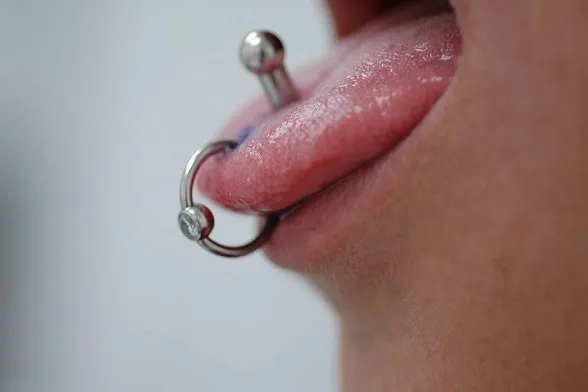Oral piercings, usually in the tongue or around the lips have quickly become a popular trend in today’s society. With this popular trend, it is important to realize that sometimes even precautions taken during the installation of the piercing jewelry are not enough to prevent harmful, long-term consequences such as cracked or chipped teeth, swelling, problems with swallowing and taste, and scars. There is also a possibility of choking on a piece of dislodged jewelry, which makes it important to ask if the risks are warranted.
One of the most serious long-term health problems that may occur from oral piercings come in the form of damage to the soft tissues such as the cheeks, gums and palate, as well as some kind of infections. When performed in an unsterile environment, any kind of body piercing may also put you at risk of contracting deadly infectious diseases such as HIV and hepatitis. A tongue piercing is a common form of body piercing. However, tongue piercings have been known to cause blocked airways (from a swollen tongue). In some cases, a tongue piercing can cause uncontrolled bleeding.
People with oral piercings — especially long-stem tongue jewelry – have a greater risk of gum disease than those without oral piercings. The jewelry can come into contact with gum tissue causing injury as well as a recession of the gum tissue, which can lead to loose teeth and tooth loss.
Caring for your Oral Piercing
-
Avoid alcohol, spicy foods, and hard and sticky foods.
-
Don’t smoke or use tobacco-based products.
-
Eat soft foods. Consult with your dentist about taking vitamins to promote faster healing.
- Make an appointment with your dentist if you suspect a problem or have a concern. It is critical for dentists to check your teeth, gums, tongue, and soft tissues for early signs of any problems.
If you notice any warning signs such as scarring, increased redness or pain at piercing site, bleeding or tearing after initial healing, yellow or green discharge from piercing site etc, contact a health care professional.
Ref: www.webmd.com
www.atooth.com

